HOT SPRINGS, S.D.—Twelve students who departed the campus of Appalachian State University on July 21 completed a 17-day journey in Hot Springs, South Dakota, on Aug. 6, finishing a nearly 2,000-mile solar car race in sixth place overall and winning three international awards along the way with their solar vehicle, Apperion.
The American Solar Challenge (ASC) is an international competition in which collegiate competitors design, build and race solar vehicles. The 2016 cross-country race began in Brecksville, Ohio, on July 29 and ended 1,975 miles, seven states and eight days later in Hot Springs, South Dakota. The ASC race organizers partnered with the National Park Service on the route, which included stage/checkpoints at national parks and historic sites, highlighting the National Park Service Centennial.
Team Sunergy began the ASC as a solid contender, having earned third place and a podium spot in the Formula Sun Grand Prix, the qualifier for the ASC which tests both driver and vehicle endurance in a weeklong series of challenges, including a three-day track race.
Throughout the ASC, Appalachian’s team maintained a strategy of steady consistency, under the guidance of team leader Dan Blakeley, a graduate student pursuing dual degrees in engineering physics and sustainable technology. The teams faced weather challenges, including rain and heavy cloud cover, which made charging the solar-charged batteries difficult at times. On the seventh day of the race, the team made the decision to take a time penalty and recharge Apperion, which had a nearly depleted battery pack, in a stretch of sunlight along the racecourse so they could enter the final day with a full charge. This decision positioned them for a strong final day of racing – and cheers as they briefly gained on front-runner University of Michigan. They had the second-best time in the final stage of the race, and hold the distinction of being one of the only three teams to complete the final and most difficult stage of the race.
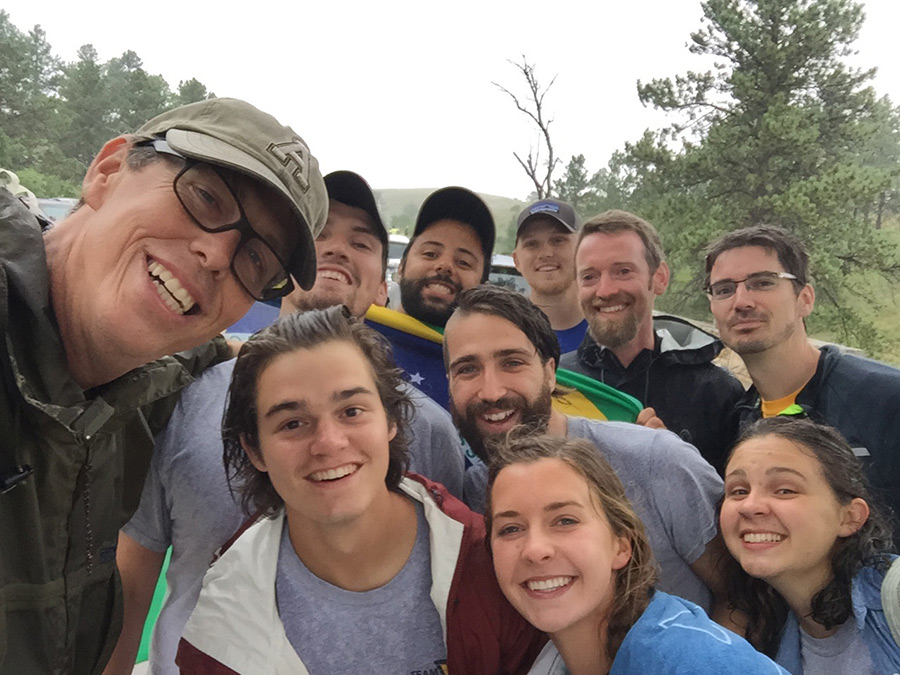
Members of Team Sunergy take an exuberant, if slightly soggy, selfie with their faculty advisors and supporters who greeted them at the finish line. Pictured are (from top left): Dr. Lee Ball, Dan Blakeley, Pedro Franco, Jake Barnes, Dr. Jeremy Ferrell, Brad Johnson, Duvey Rudow (center), and in front row Bailey Winecoff, Lindsay Rudisill and Abby Hastings. Photo by Lee Ball.
Overall winners of the race were the University of Michigan in first, Dunwoody College of Technology in second and the University of Toronto in third. In the more than two decades of the ASC, Appalachian is the first North Carolina team to enter the race. In 2016, Appalachian and Principia College were the only colleges without engineering programs to enter the competition.
In addition to their sixth-place overall rank for the ASC, Appalachian was awarded the Abraham Poot Teamwork award and driver Lindsay Rudisill won the Fastest Egress award at the ASC award ceremony held Aug. 6 at Wind Cave National Park Visitor Center in Hot Springs.
Team Sunergy consists of 12 students:
- Team leader Dan Blakeley from Olympia, Washington, a graduate student pursuing dual degrees in engineering physics and appropriate technology
- Jake Barnes, a junior physics major from Chapel Hill
- Pedro Franco from Belo Horizonte, in Minas Gerais, Brazil, who completed his master’s degree in renewable energy engineering this summer
- James Furr, a sophomore sustainable technology major from Charlotte
- Andrew Grimes, a senior finance and banking major from Raleigh
- Jon Linck, a senior appropriate technology major from Raleigh
- Abby Hastings, a senior physics major from King George, Virginia
- Jongmin Na, a senior physics major from South Korea who resided in Hickory during high school
- Lindsay Rudisill, a senior music industry studies major from Chattanooga, Tennessee
- David “Duvey” Rudow, a senior physics major from Asheville
- Logan Ward, a senior physics major from Waynesville
- Bailey Winecoff, a senior sustainable technology major from Charlotte
The team is supported by three faculty advisors: Dr. Jeremy Ferrell, assistant professor in the Department of Sustainable Technology and the Built Environment, Chris Tolbert of the Department of Sustainable Technology and the Built Environment, and Brad Johnson of the Department of Physics and Astronomy.
Chancellor Sheri N. Everts, in her send-off remarks as the team departed Appalachian’s campus, said that Team Sunergy’s work “represents the bold, confident and pioneering attitude that so perfectly represents our campus and its vision to build a brighter future.”
For more information on the competition, team status and results, visit the 2016 American Solar Challenge/Formula Sun Grand Prix website at
http://americansolarchallenge.org/the-competition/ascfsgp-2016
An Appalachian team seeks to change the future of transportation with a solar race car
About App State’s Team Sunergy
Appalachian State University’s internationally recognized Team Sunergy is an interdisciplinary, student-led team with a passion for sustainable transportation — and the ingenuity, innovation and drive to create it. The team began in fall 2013, as a class project to build a solar-powered golf cart, and has evolved into an award-winning program that has achieved podium finishes in every year of competition in both the Formula Sun Grand Prix and American Solar Challenge (ASC), including a first-place finish in the 2021 ASC. Both races set the standards for and test the limits of solar vehicle technology. Team Sunergy’s first vehicle, Apperion, was a modified single-occupant race car. In 2018, the team designed and built its current, two-passenger, Cruiser Class car, ROSE (Racing on Solar Energy), from the ground up. Learn more at https://sunergy.appstate.edu.
About Appalachian State University
As a premier public institution, Appalachian State University prepares students to lead purposeful lives. App State is one of 17 campuses in the University of North Carolina System, with a national reputation for innovative teaching and opening access to a high-quality, cost-effective education. The university enrolls more than 21,000 students, has a low student-to-faculty ratio and offers more than 150 undergraduate and 80 graduate majors at its Boone and Hickory campuses and through App State Online. Learn more at https://www.appstate.edu.
What do you think?
Share your feedback on this story.
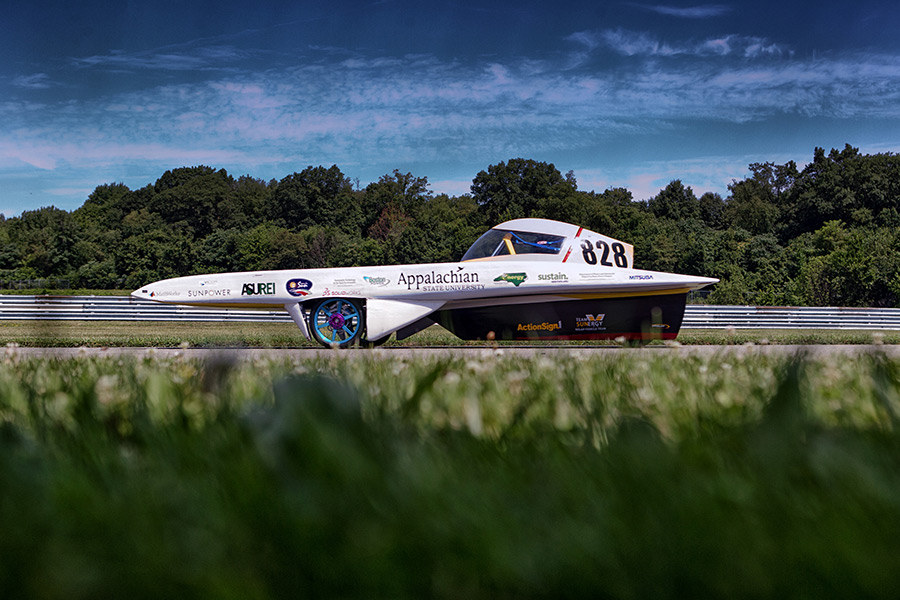
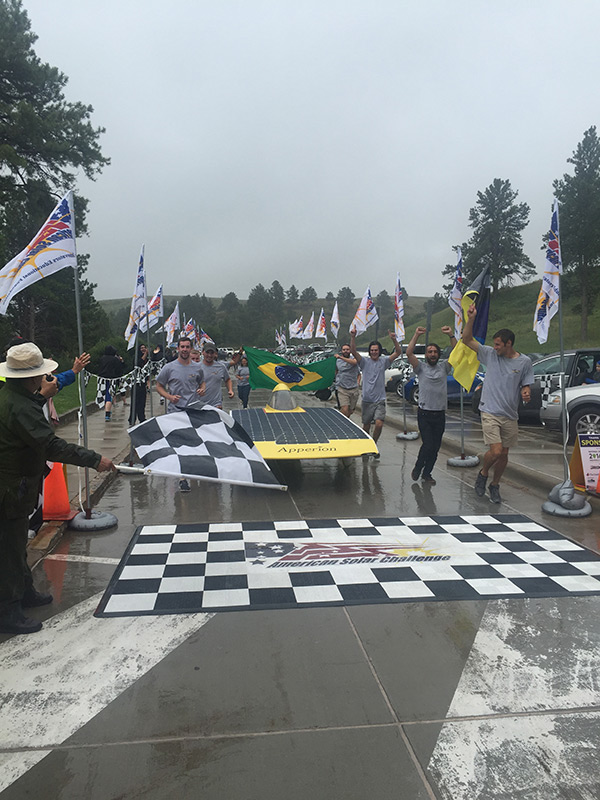
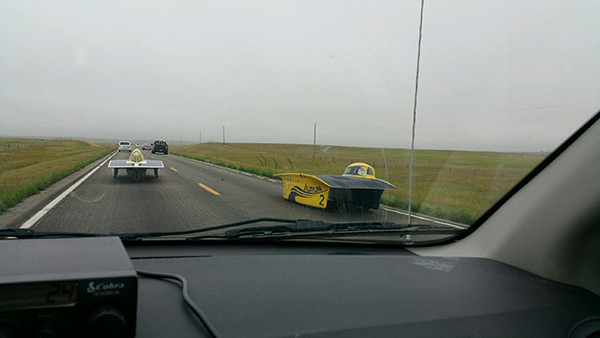
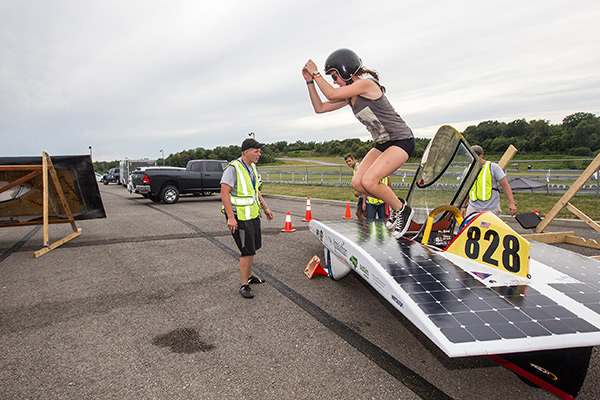
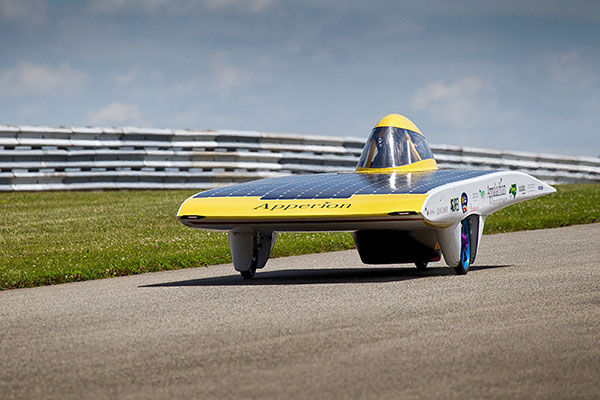




![How NCInnovation Is Rethinking Economic Development in North Carolina [faculty featured]](/_images/_posts/2026/02/rethinking-economic-development-600x400.jpg)






